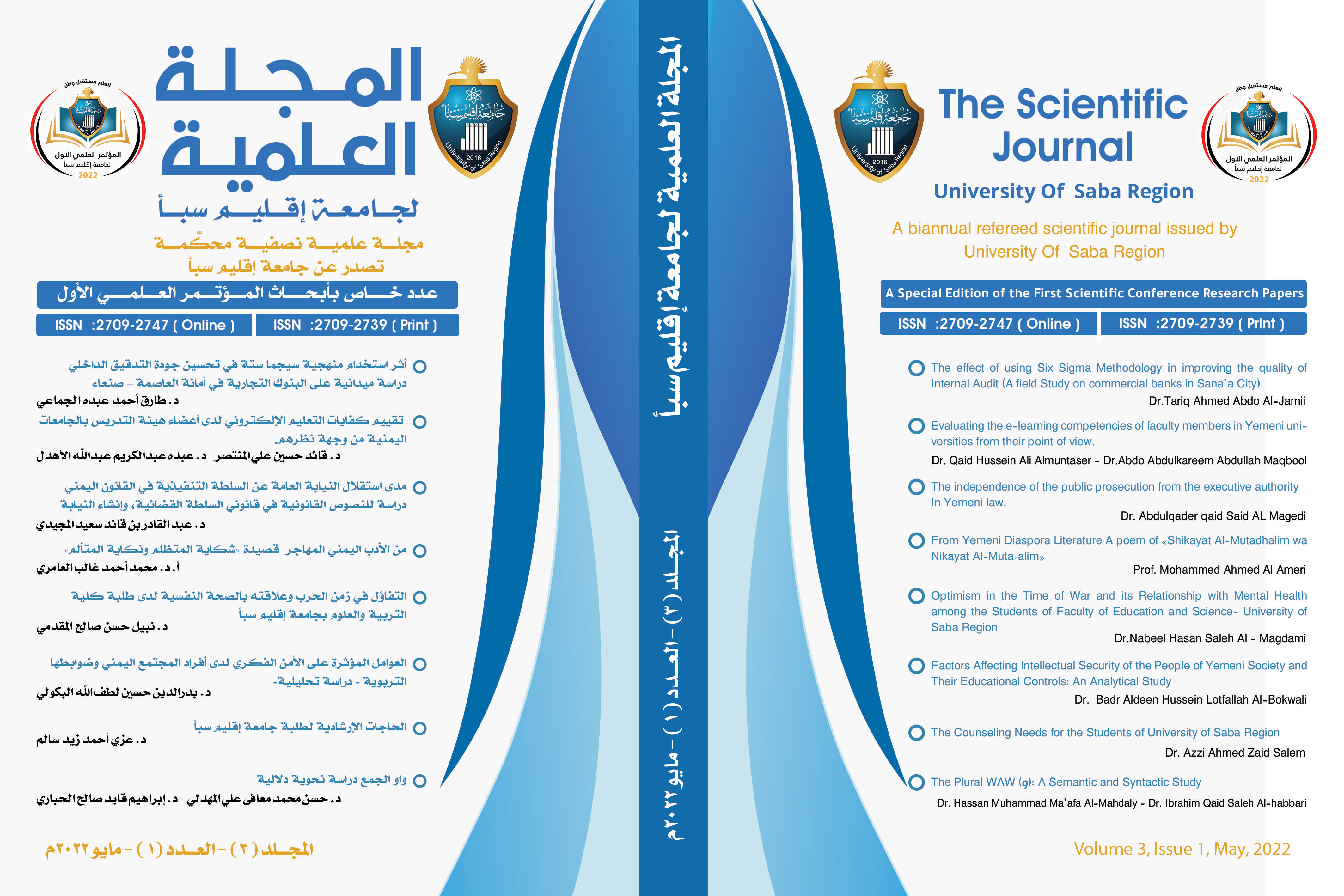The effect of using Six Sigma Methodology in improving the quality of Internal Audit (A field Study on commercial banks in city of Sana’a)
DOI:
https://doi.org/10.54582/TSJ.2.2.10Keywords:
quality audit, Six Sigma methodologies, Internal AuditingAbstract
The study aimed to identify the extent of the impact of using the Six Sigma methodology in improving the quality of internal auditing in commercial banks in the city of Sana’a.
In order to achieve the objectives of the study, the researcher designed a questionnaire consisting of (73) items to gather the primary information from study sample which consisted (75) informants working in the internal audit department and the quality department in the following commercial banks (Al-Tadamun Bank, World Bank, CAC Bank, Arab Bank and Al-Kuraimi Bank). The statistical package for social sciences (SPSS) was used to analyze and examine the study hypotheses. The main findings of the study were :
The Commercial banks in Sana’a city adhere to Six Sigma standards (the senior leadership support, feedback and measurement, continuous improvement, processes and systems, human resources) significantly
The Commercial banks in Sana’a city committed to the standards of Internal Audit (professional competence, managing the activities of internal audit work, planning and implementation of the internal audit process, the delivery of results) significantly.
The results of analysis show a twenty-three correlation significantly. It has been shown that the highest correlation values were between support senior leadership criteria and the professional competence the value of (0. 681**) while there was less correlation between the human resources and planning and implementation of the internal audit process with value( 0.317*)
Keywords: quality audit, Six Sigma methodologies, Internal Auditing
Downloads
Published
How to Cite
Issue
Section
License
Copyright and Licensing
This journal publishes all scientific materials under the Creative Commons Attribution 4.0 International (CC BY 4.0) , license, which grants you the following permissions:
You are free to:
- Share — copy and redistribute the material in any medium or format for any purpose, even commercially.
- Adapt — remix, transform, and build upon the material for any purpose, even commercially.
- The licensor cannot revoke these freedoms as long as you follow the license terms.
Under the following terms:
- Attribution — You must give appropriate credit , provide a link to the license, and indicate if changes were made . You may do so in any reasonable manner, but not in any way that suggests the licensor endorses you or your use.
- No additional restrictions — You may not apply legal terms or technological measures that legally restrict others from doing anything the license permits.
Notices:
You do not have to comply with the license for elements of the material in the public domain or where your use is permitted by an applicable exception or limitation .
No warranties are given. The license may not give you all of the permissions necessary for your intended use. For example, other rights such as publicity, privacy, or moral rights may limit how you use the material.











